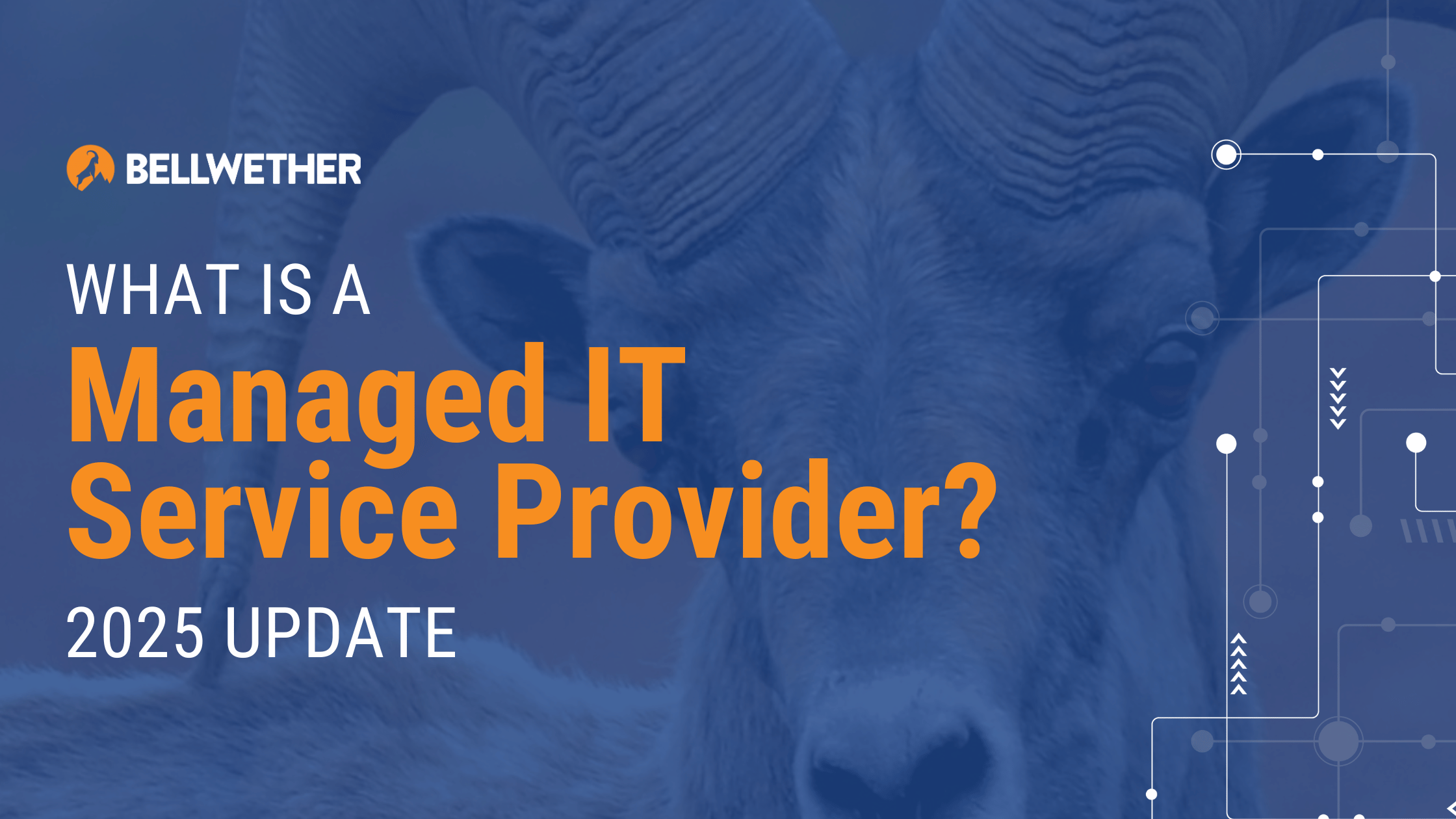
[2025 Update] If you’re reading this, someone probably told you to “look into managed IT services” for your business. Here’s what that actually means and whether it makes sense for you. But first, here’s what you need to watch out for – some companies calling themselves “managed service providers” can handle basic IT maintenance but have no idea how to help you implement AI tools, automation workflows, or other emerging technologies that could actually transform your business.
So what’s a real managed service provider in 2025? And how do you tell the difference between companies that can genuinely help your business and those that are just calling basic IT support “managed services”?
Here’s what you need to know.
Key Takeaways
Managed IT Service Provider Definition
A managed IT services provider (also called an MSP) is a company that handles some or all of your business’s technology and cybersecurity needs on an ongoing basis, for a monthly fee.
What You Get from a Managed IT Service Provider
Managed IT services are a strategic way to bring in expertise that most businesses can’t build in-house – especially the specialized skills needed for 2025 challenges like implementing AI tools that keep systems stable and secure, automating repetitive business processes, managing multi-cloud environments, and staying ahead of increasingly sophisticated cybersecurity threats.
MSPs use proven processes to help businesses build stable and secure IT systems. They fill gaps in technology capability and give business leaders access to advisors who can guide IT strategy creation and help make informed technology investments that drive business results.

What Gets Managed
MSPs take responsibility for the technical aspects of keeping your technology running smoothly and securely, while you stay in control of business decisions. This includes:
- Your IT Infrastructure: They monitor and maintain your technology systems – whether that’s servers, networks, computers, cloud environments, or hybrid setups that keep your business operating
- Security and Compliance: They create a layered security strategy that protects your data and helps ensure you meet industry regulations
- Day-to-Day IT Operations: They handle proactive monitoring, maintenance, and updates, plus provide reactive support like help desk and on-site assistance when problems occur
- Strategic Technology Planning: They provide expert guidance to help you make informed decisions about future technology investments and improvements

Key Benefits You Can Expect from Managed IT
Access to Advanced Technology and Expertise
Working with an MSP gives you access to sophisticated technology and skilled professionals that would be too expensive to hire and maintain on your own. You get the benefit of advanced tools and a team of specialists without the high costs.
Relief from IT Staffing Challenges
MSPs provide access to qualified and experienced IT experts without the burden of attracting, hiring, and retaining full-time IT staff. You get a complete team of specialists without dealing with IT recruitment challenges, employee turnover, or the high costs of competitive IT salaries.
Strategic IT Planning and vCIO Services
Many MSPs provide virtual Chief Information Officer (vCIO) services – giving you access to senior-level IT leadership without the executive salary. Your vCIO helps align technology decisions with your business goals and guides you on where technology investments will have the biggest impact on your success.
Transform IT from Cost Center to Business Driver
The key shift that happens when you work with the right MSP is moving from thinking about IT as an expense to using it as a competitive advantage. Instead of wondering “how much is IT costing us this month?” you’ll start asking “how can technology help us reach our business goals?”
How to Choose the Right MSP
As you evaluate managed IT service providers, remember that not every company that says they’re an MSP actually delivers the same results. Look for providers who focus on business outcomes, not just technical features. They should be able to explain how their services will impact your bottom line and support your growth objectives. Most importantly, they should demonstrate real expertise in emerging technologies like AI and automation – not just talk about them.

Learn how to evaluate Managed IT Service providers.
Ready to Explore Managed IT Services for your business?
Here at Bellwether, clients get all of the benefits that an experienced managed service provider can bring with a local connection. We’ve been serving the IT needs of small and medium-sized businesses since 1980. Our team of 65+ experienced professionals is located across New Orleans and Charlotte, providing responsive, personalized service throughout the Gulf South and Carolinas.
Our approach focuses on transforming IT from a cost center into a strategic business driver. We don’t just manage your technology—we help you use it to reach your business objectives, whether that’s improving operational efficiency, strengthening security, or supporting growth initiatives.
Get in touch to explore how managed IT can drive your business forward.
Frequently Asked Questions About Managed IT Services
MSPs take responsibility for the technical aspects of your IT while you stay in control of business decisions. They handle your infrastructure, security strategy, day-to-day operations, and provide strategic guidance for technology planning.
Managed IT services typically range from $130-$250 per user monthly for core services like help desk support, proactive monitoring, and basic cybersecurity. One-time projects such as network upgrades, hardware replacements, or infrastructure improvements are priced separately based on scope and complexity. Get info about managed IT services pricing here.
Managed IT eliminates the burden of attracting, hiring, and retaining IT staff. You get access to a full team of specialists without dealing with recruitment challenges, turnover, or competitive IT salaries.
No. Good MSPs work as strategic partners, providing expertise and recommendations while keeping you in control of all major decisions that affect your business.
Many MSPs offer co-managed services, where they work alongside your internal team to fill specific gaps or provide specialized expertise you don’t have in-house.
